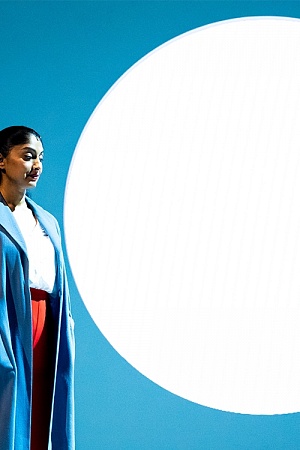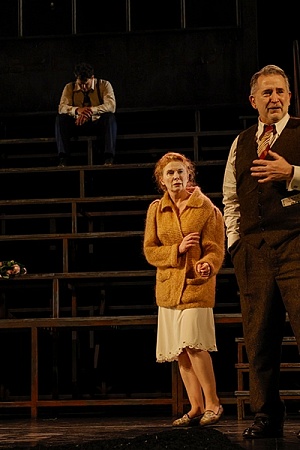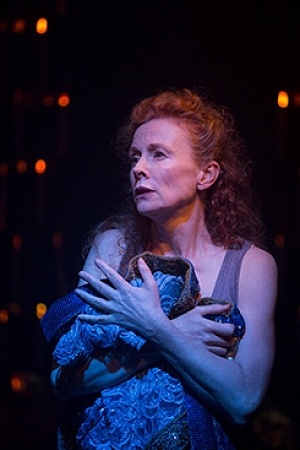Uncle Vanya (Red Stitch Theatre) ★★★
When is it useful for an Australian production of Chekhov to use Russian accents? What does it do to the music of Chekhov, the rhythm and flow of his brisk conversations and long grandiose speeches? And what is the symbolism of such a decision?
In this new production of Uncle Vanya (1899), directed by Nadia Tass, not only are the cast all decked out in nineteenth-century costumes and gathered around an antique samovar, but, yes, they all speak in Russian accents. It is a surprising decision given that Tass is using a more-or-less colloquial translation by New York playwright Annie Baker, full of muted but unmistakable contemporary Americanisms. Wouldn’t a Brooklynese drawl have worked just as well?
In any case, this is a strange production of Chekhov’s beautiful bittersweet play about boredom and disenchantment. There are some impressive moments, and the performances are generally good, but overall it is a hard show to really engage with. There is a nagging sense that some key ingredient is missing, or has been lost in the clutter.
Continue reading for only $10 per month. Subscribe and gain full access to Australian Book Review. Already a subscriber? Sign in. If you need assistance, feel free to contact us.















Comments (3)
Regarding the translation: for what it's worth, I do think that "oddball" worked well enough in this production. It's colloquial US so it fits in with the rest of the translation. There's a discussion of the relative merits of "creep" and "oddball" on page 7 of the programme of the Round House Theatre's 2015 production (https://issuu.com/roundhousetheatre/docs/vanya_program_150401a).
Andrew Fuhrmann is mistaken when he says "the much lauded 2011 Sydney Theatre Company production of Uncle Vanya with Cate Blanchett was done with Russian accents".
I know this to be quite untrue because I was in it.
At the insistence of the Hungarian director Tamas Ascher, we actors used various Australian accents, depending on our characters' station in life, ranging from broad and rustic, to middlebrow and educated, to downright posh, rather like a typical cross section of accents one can hear any day in Australia.
What's more, American audiences seem to have no problem listening to an Australian accent, some even profess to enjoy it Sincerely Jacki Weaver
Leave a comment
If you are an ABR subscriber, you will need to sign in to post a comment.
If you have forgotten your sign in details, or if you receive an error message when trying to submit your comment, please email your comment (and the name of the article to which it relates) to ABR Comments. We will review your comment and, subject to approval, we will post it under your name.
Please note that all comments must be approved by ABR and comply with our Terms & Conditions.